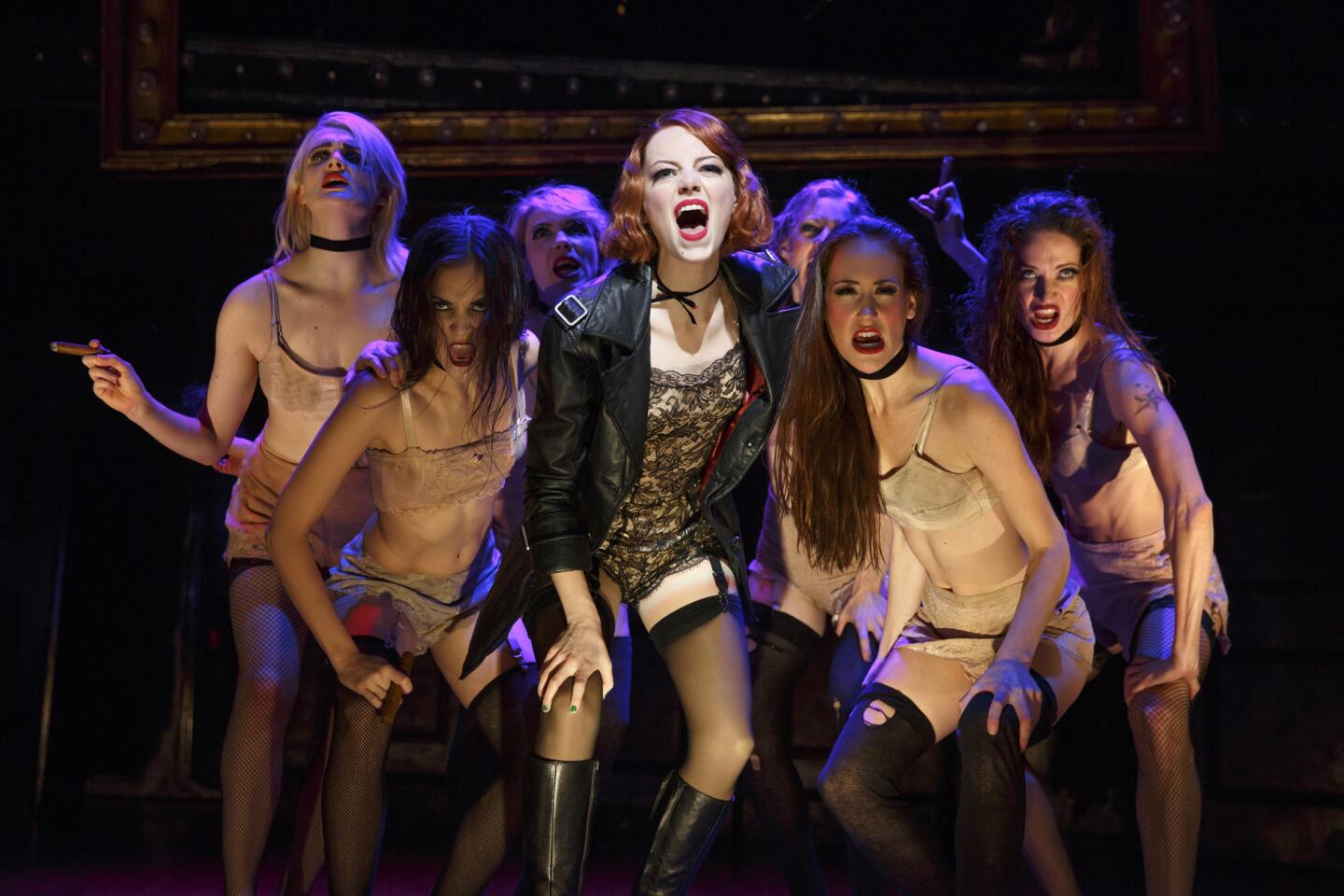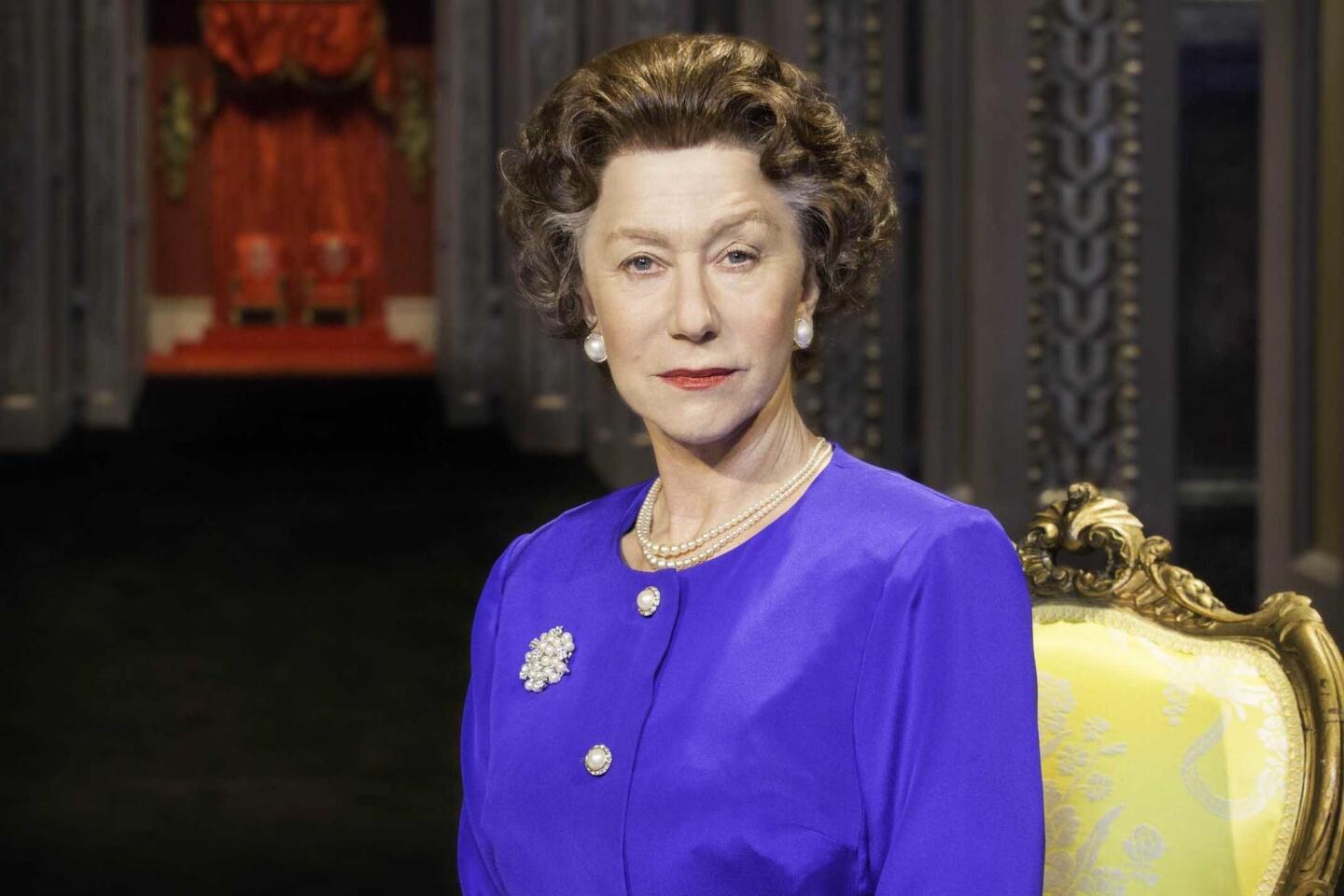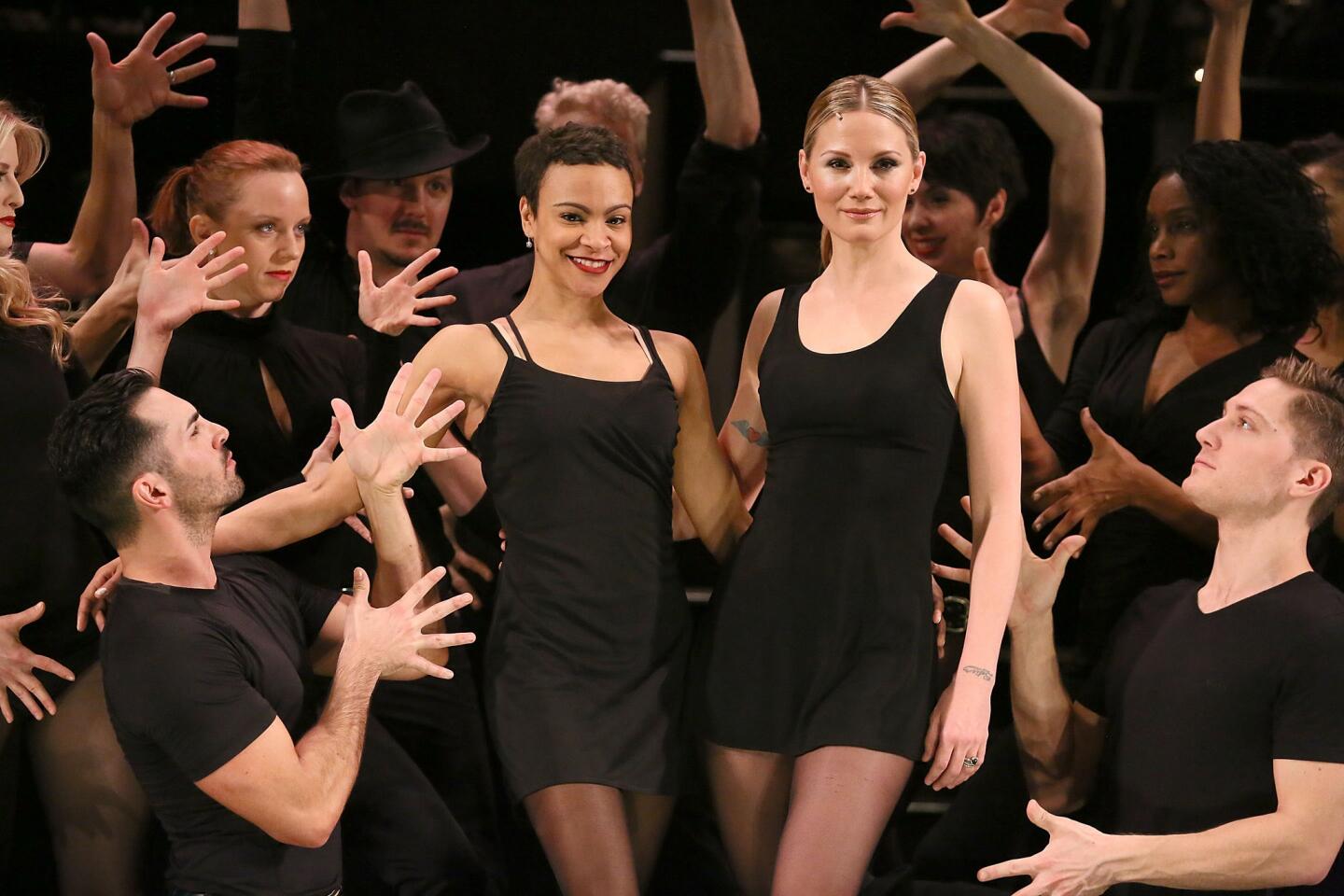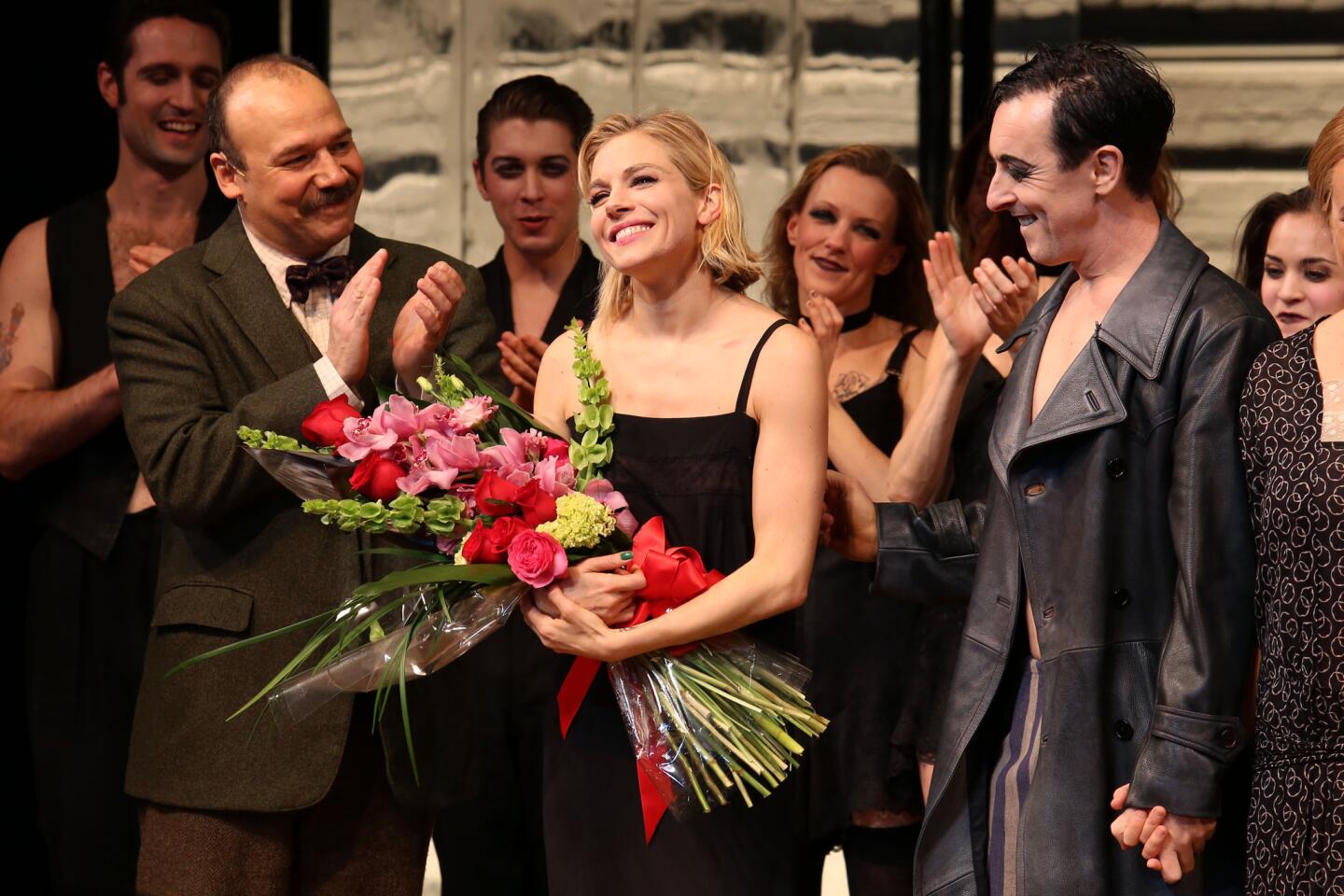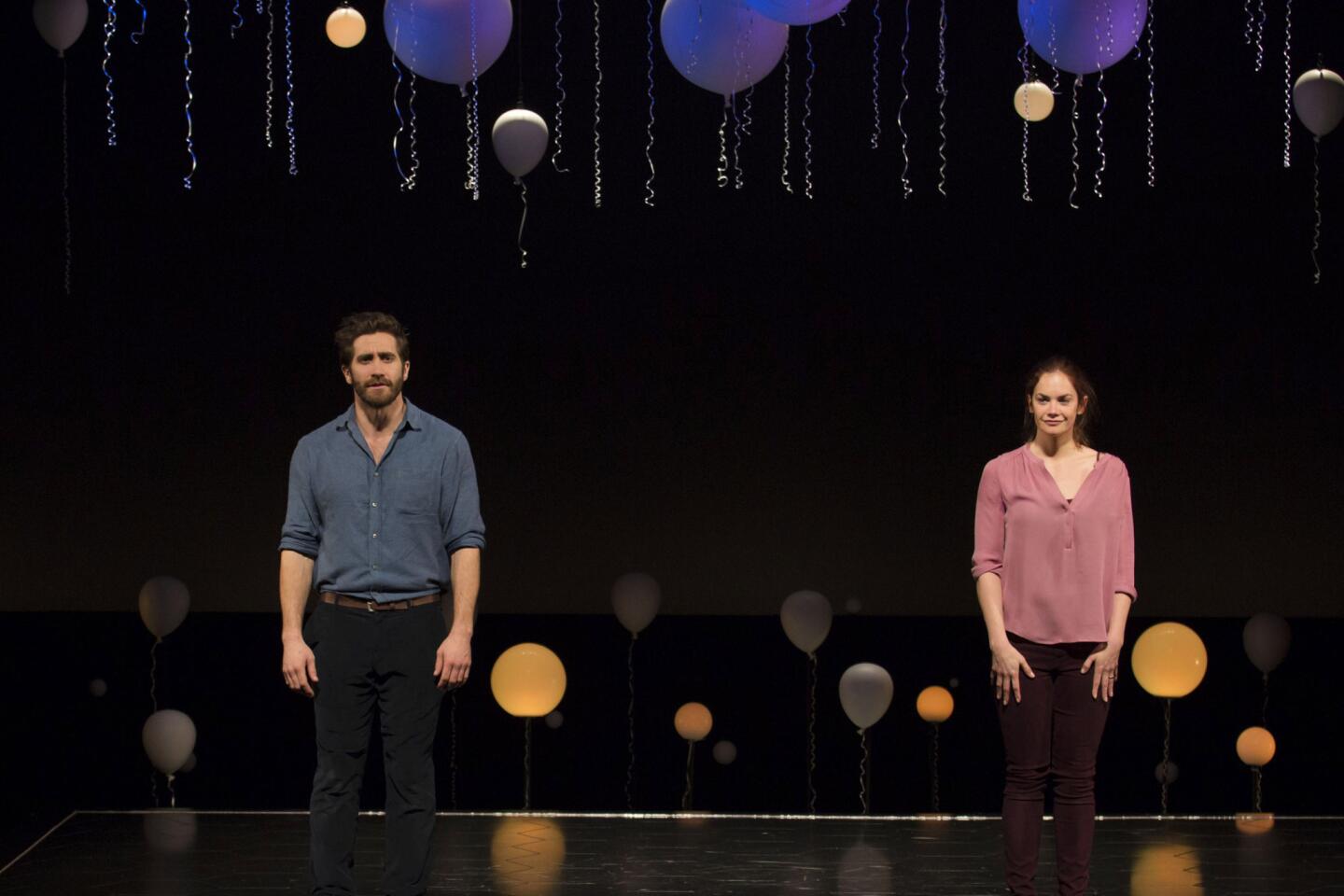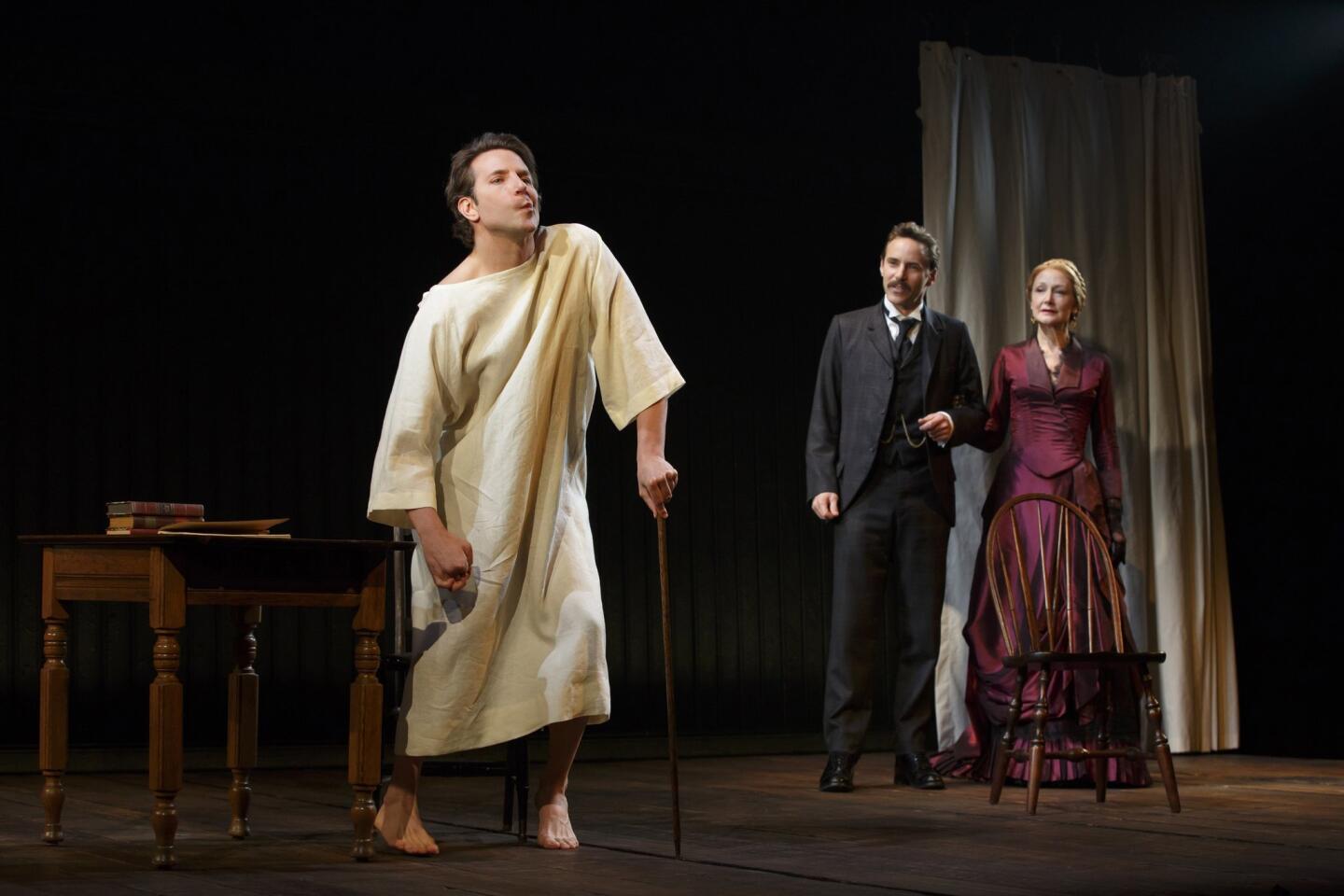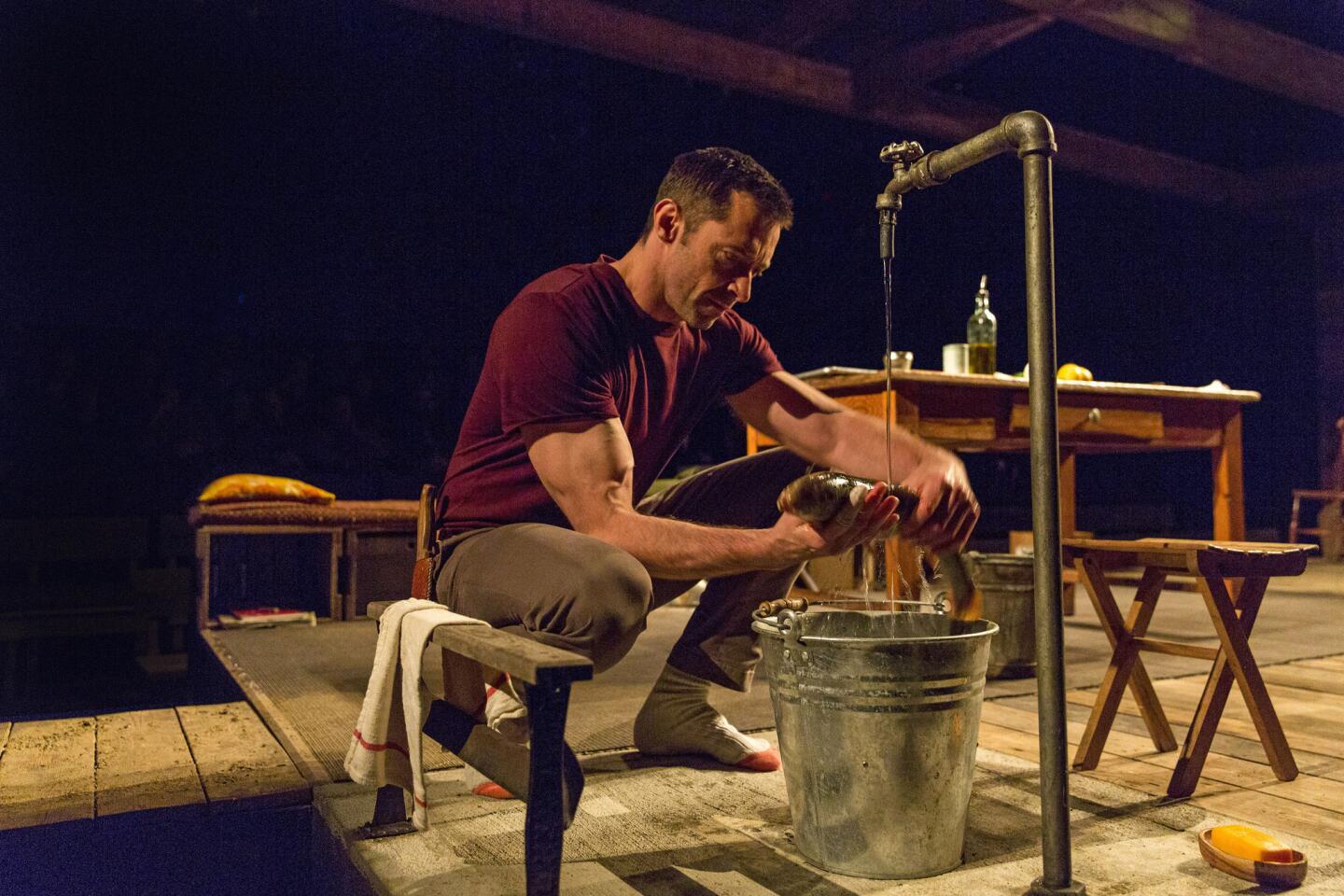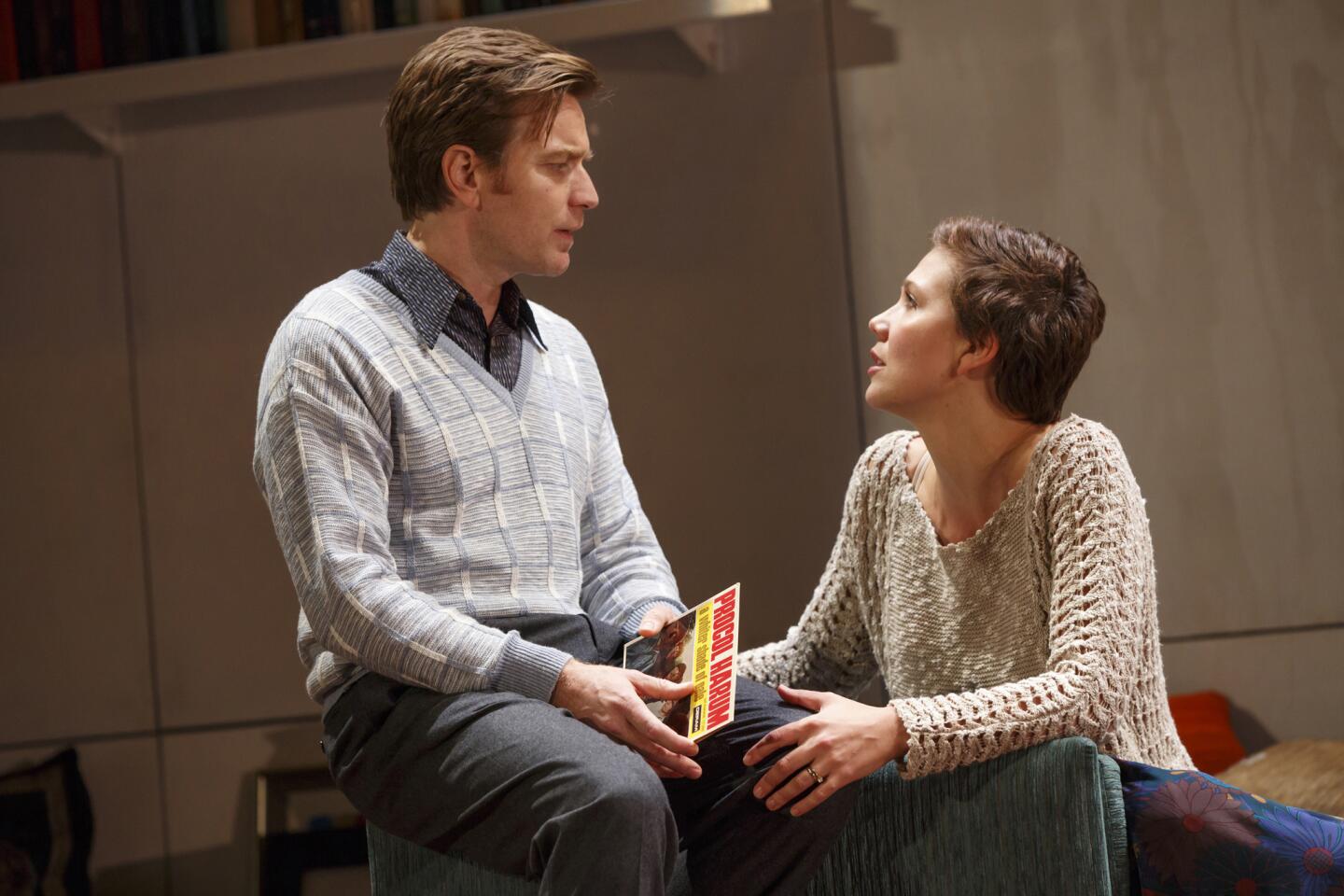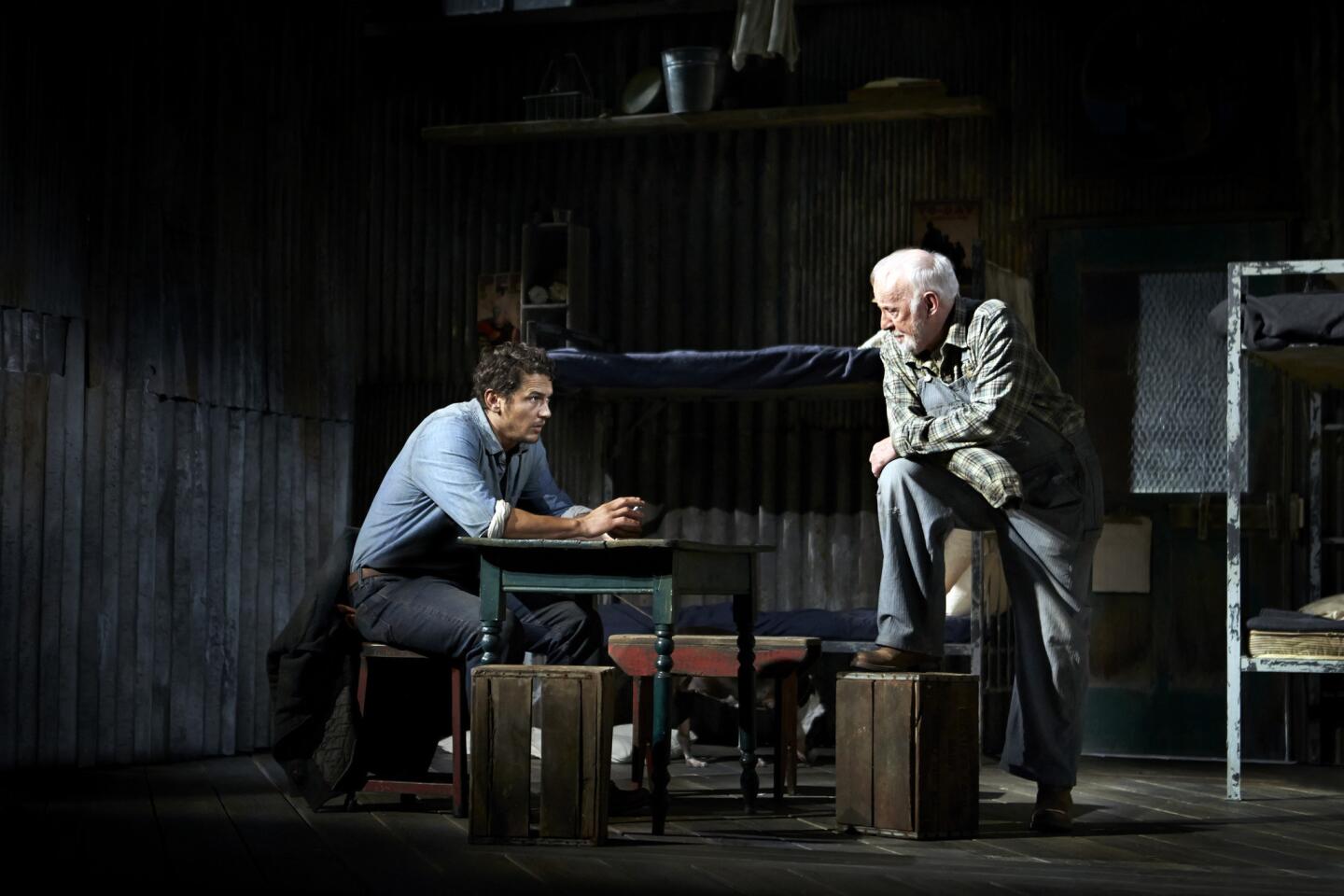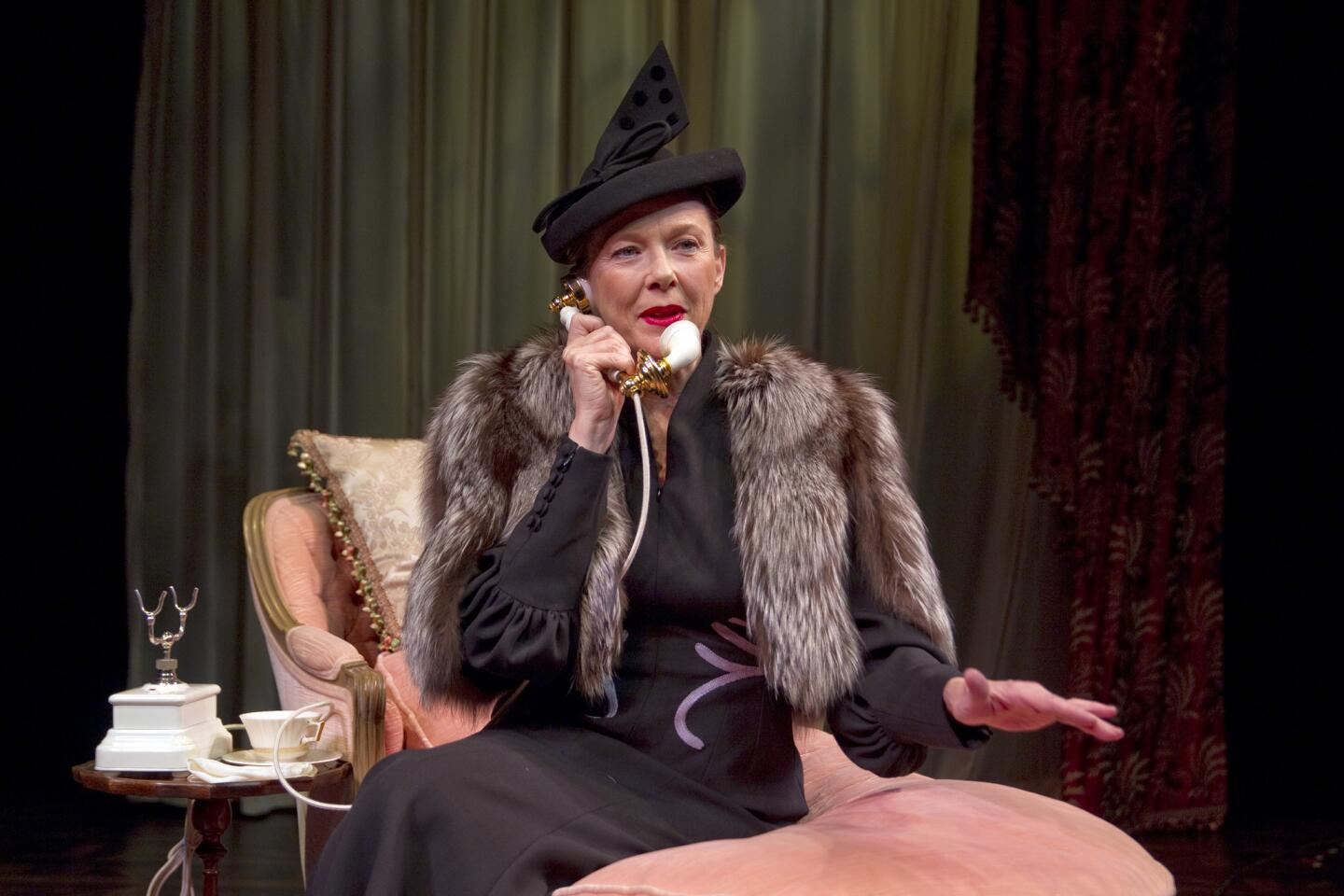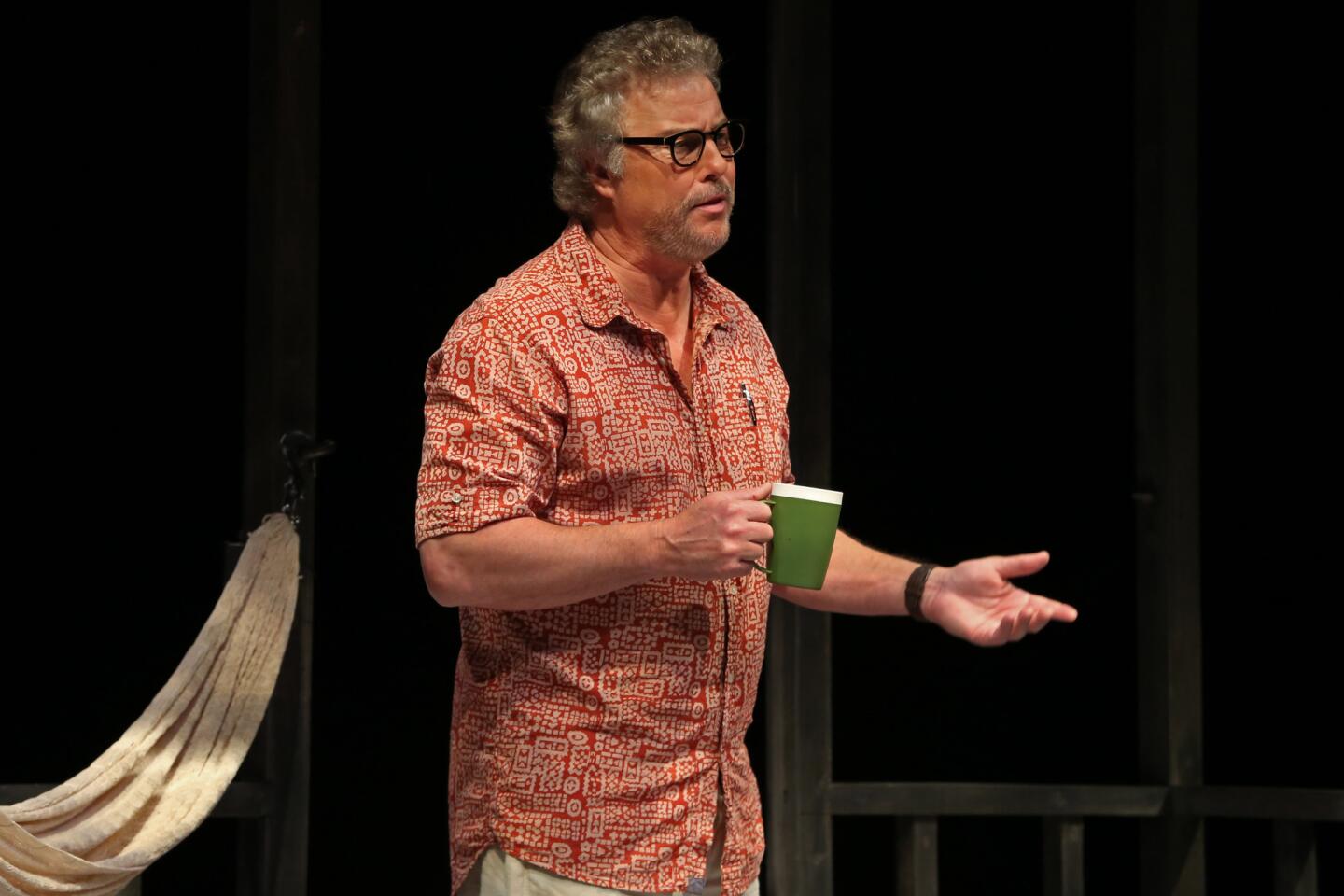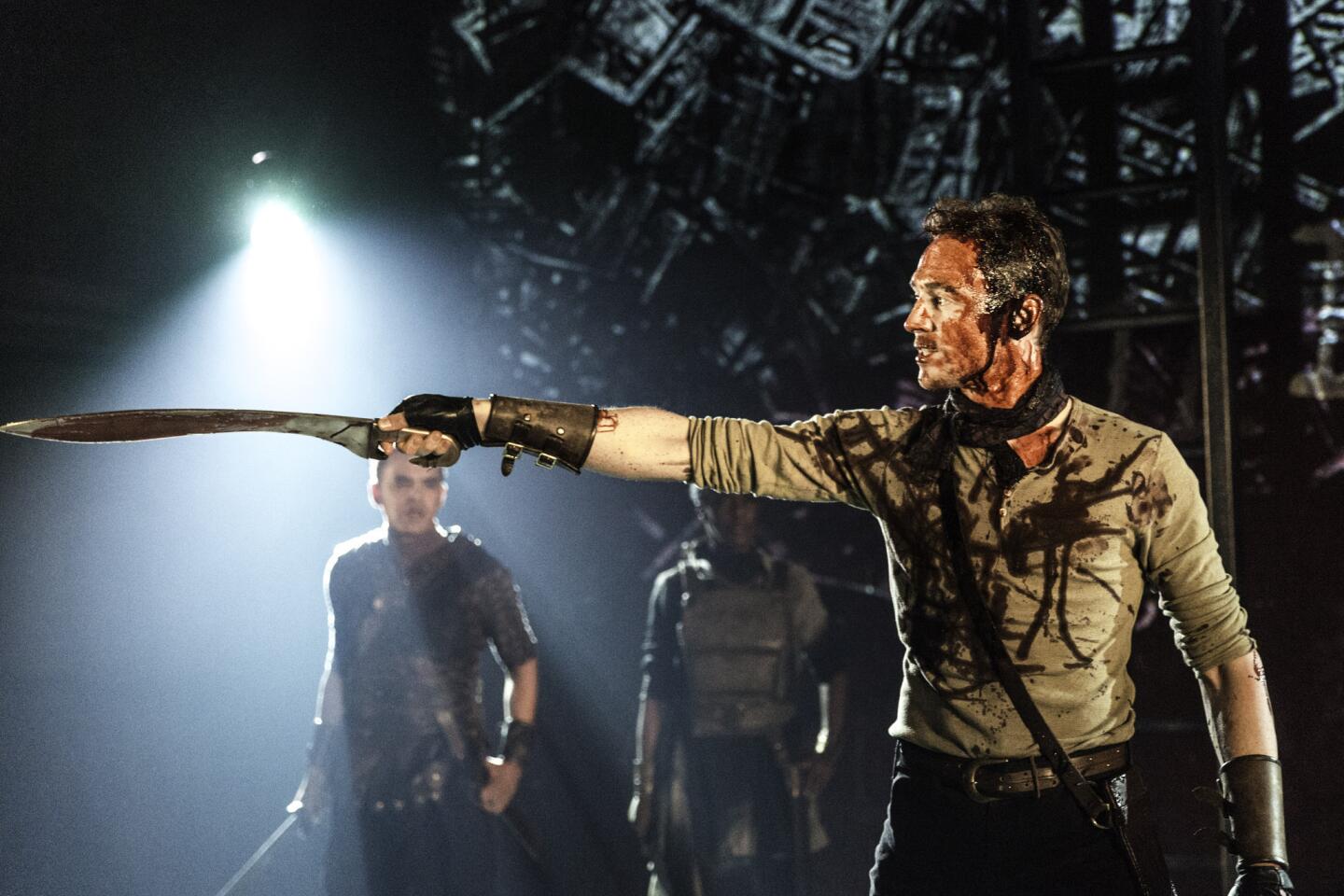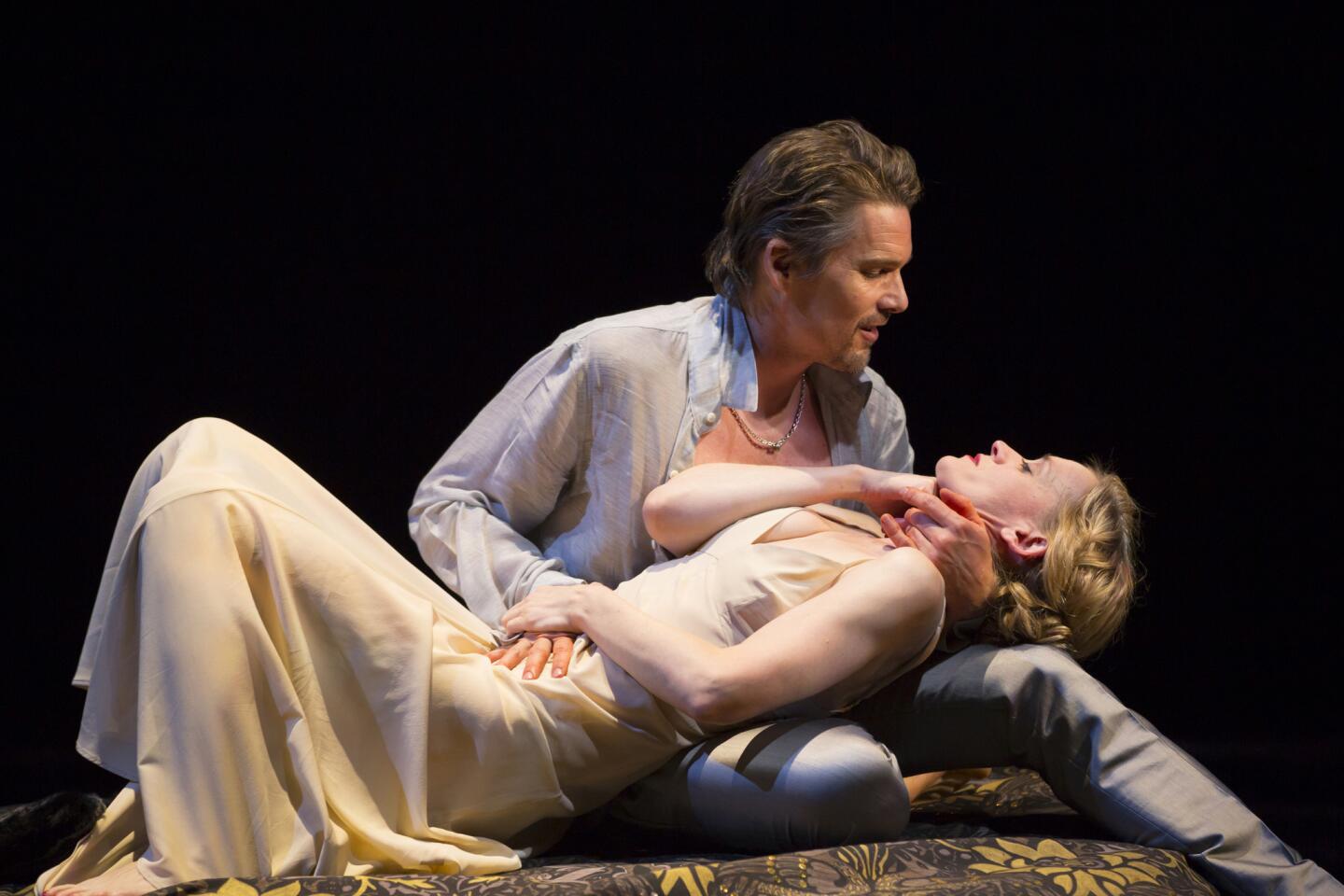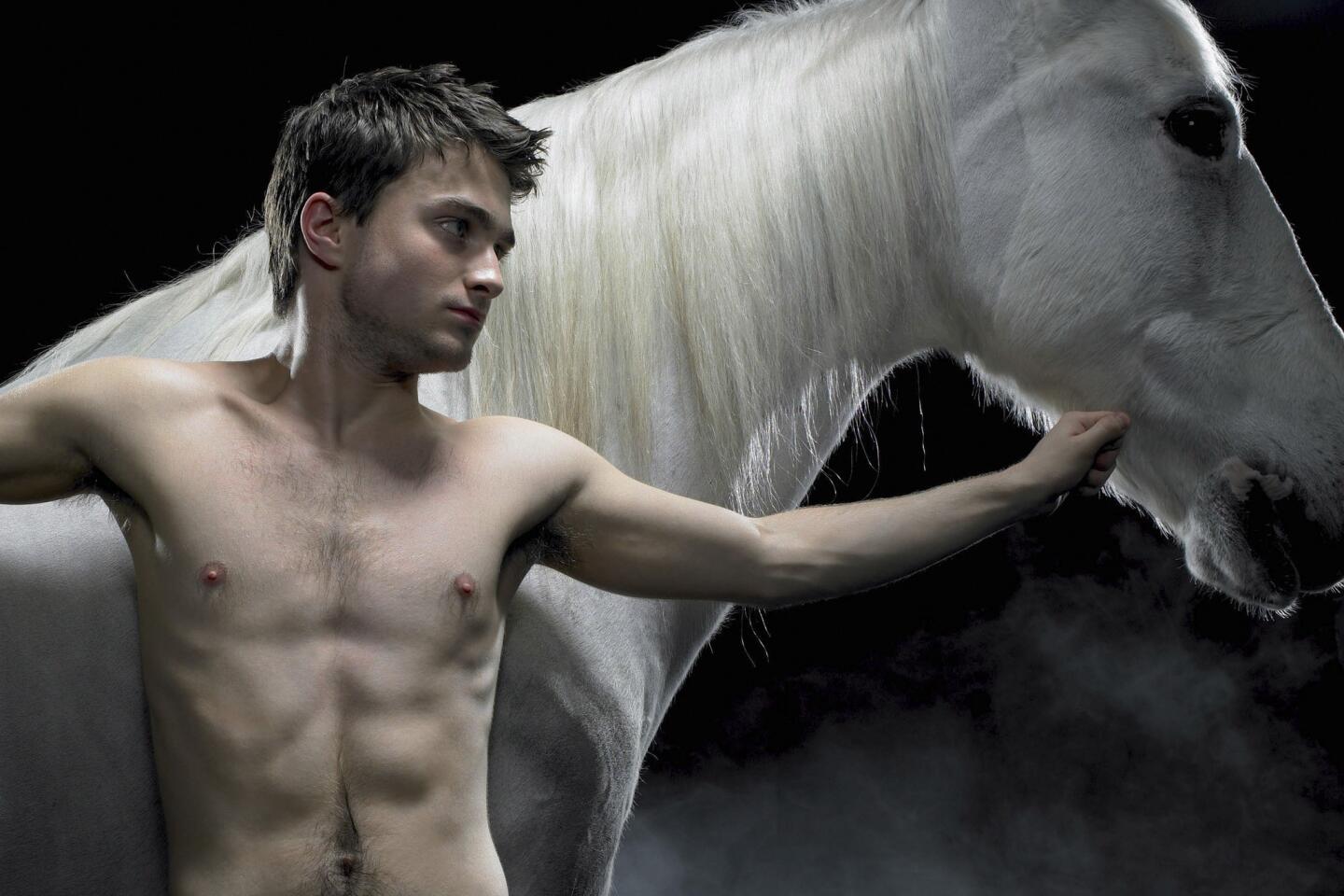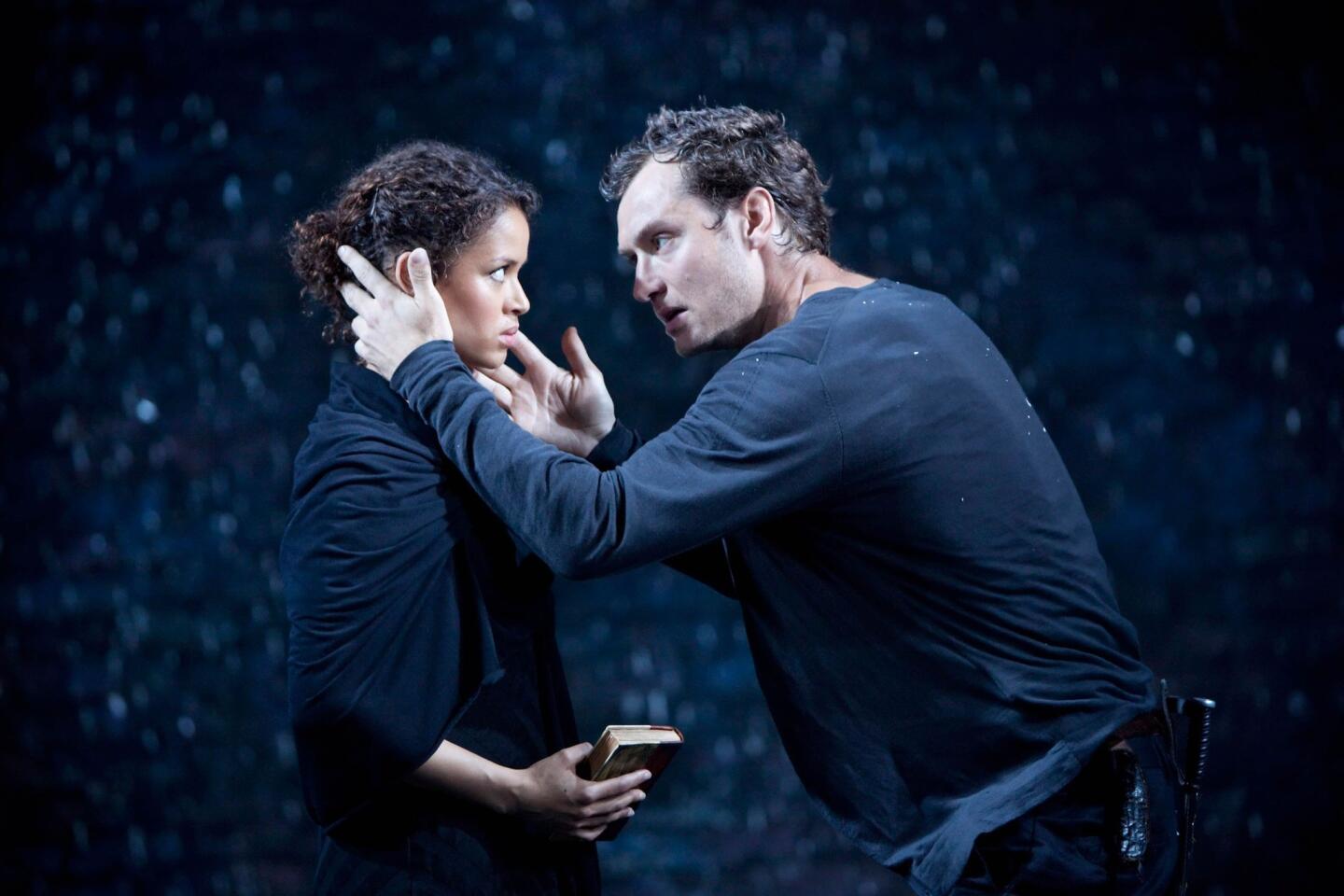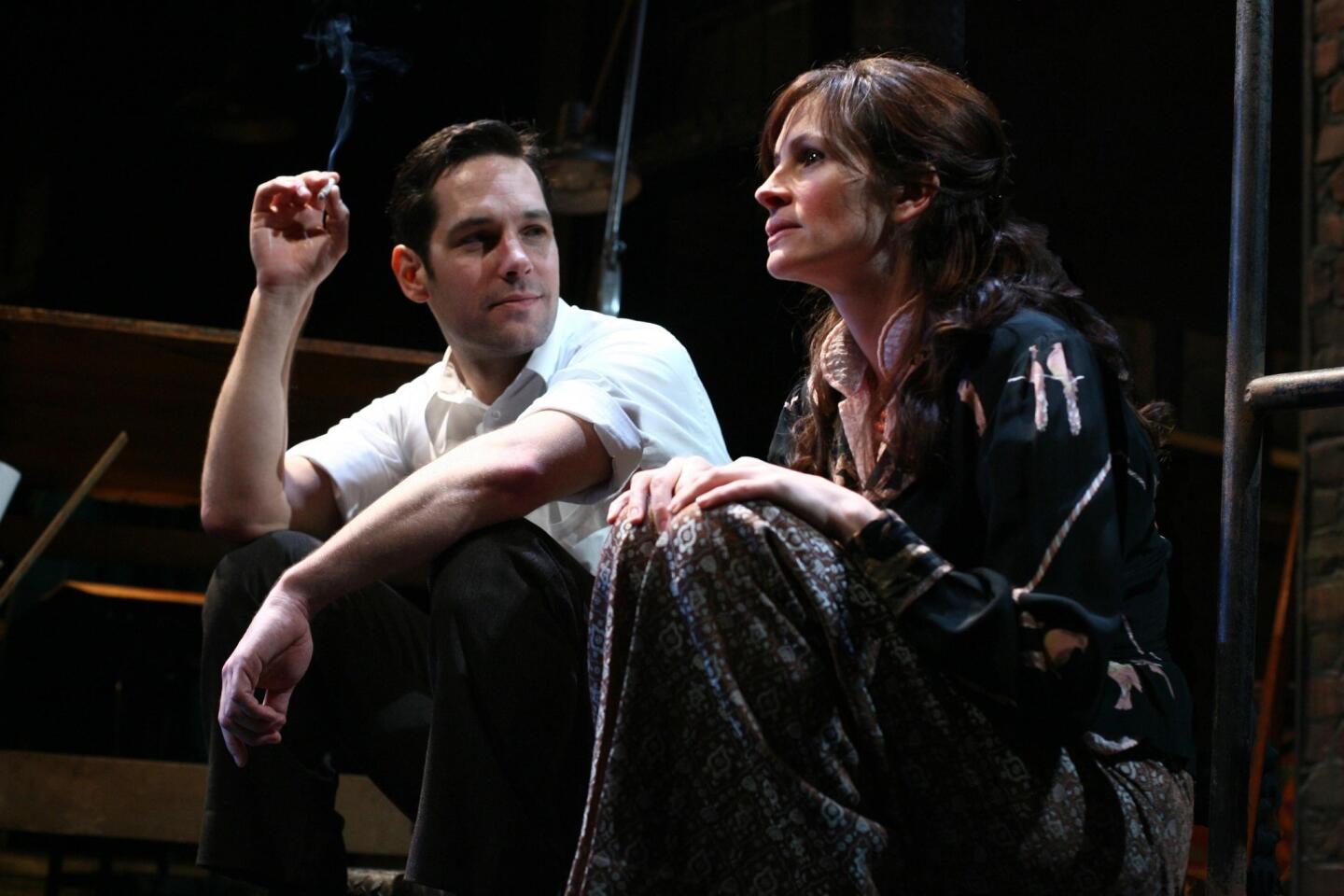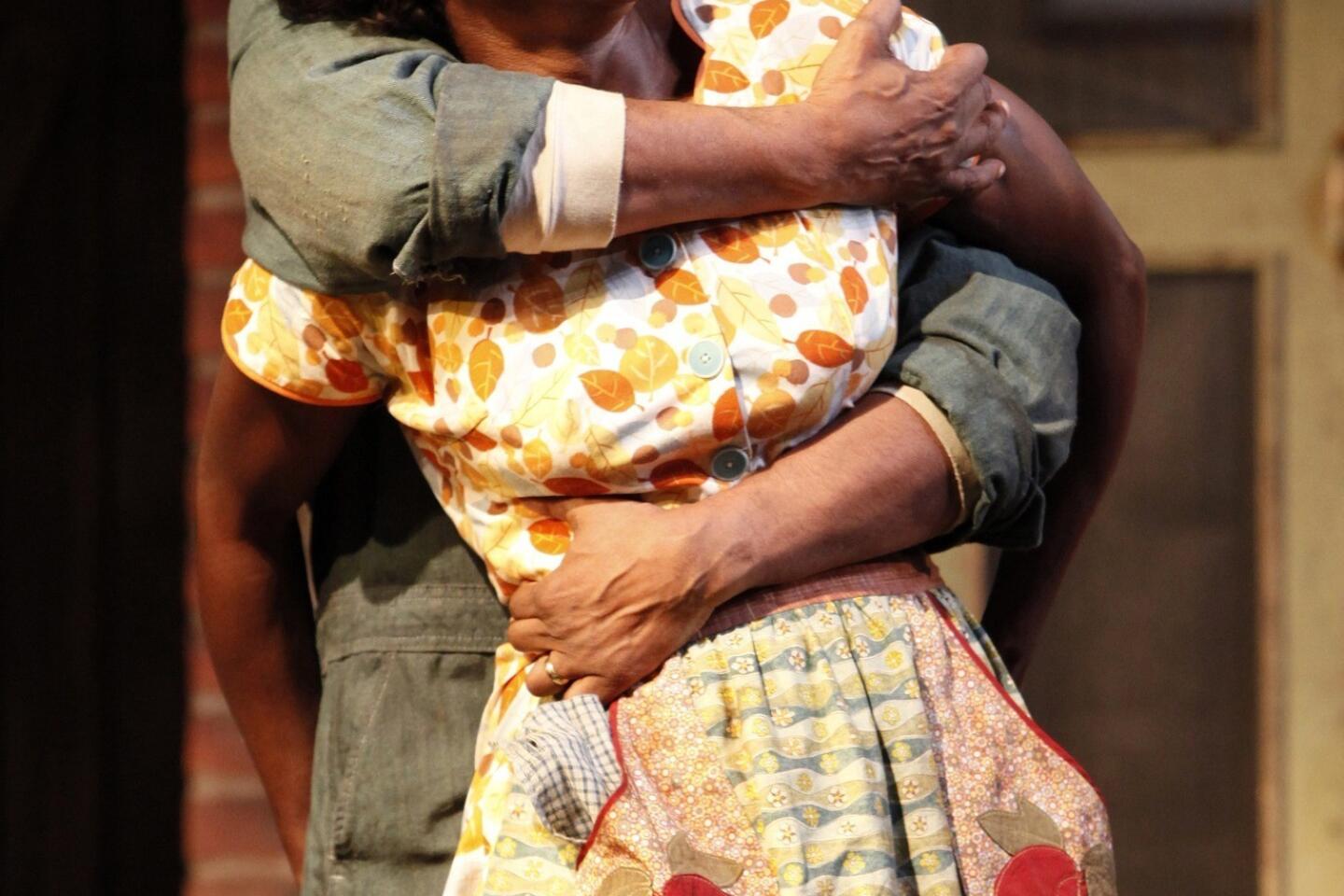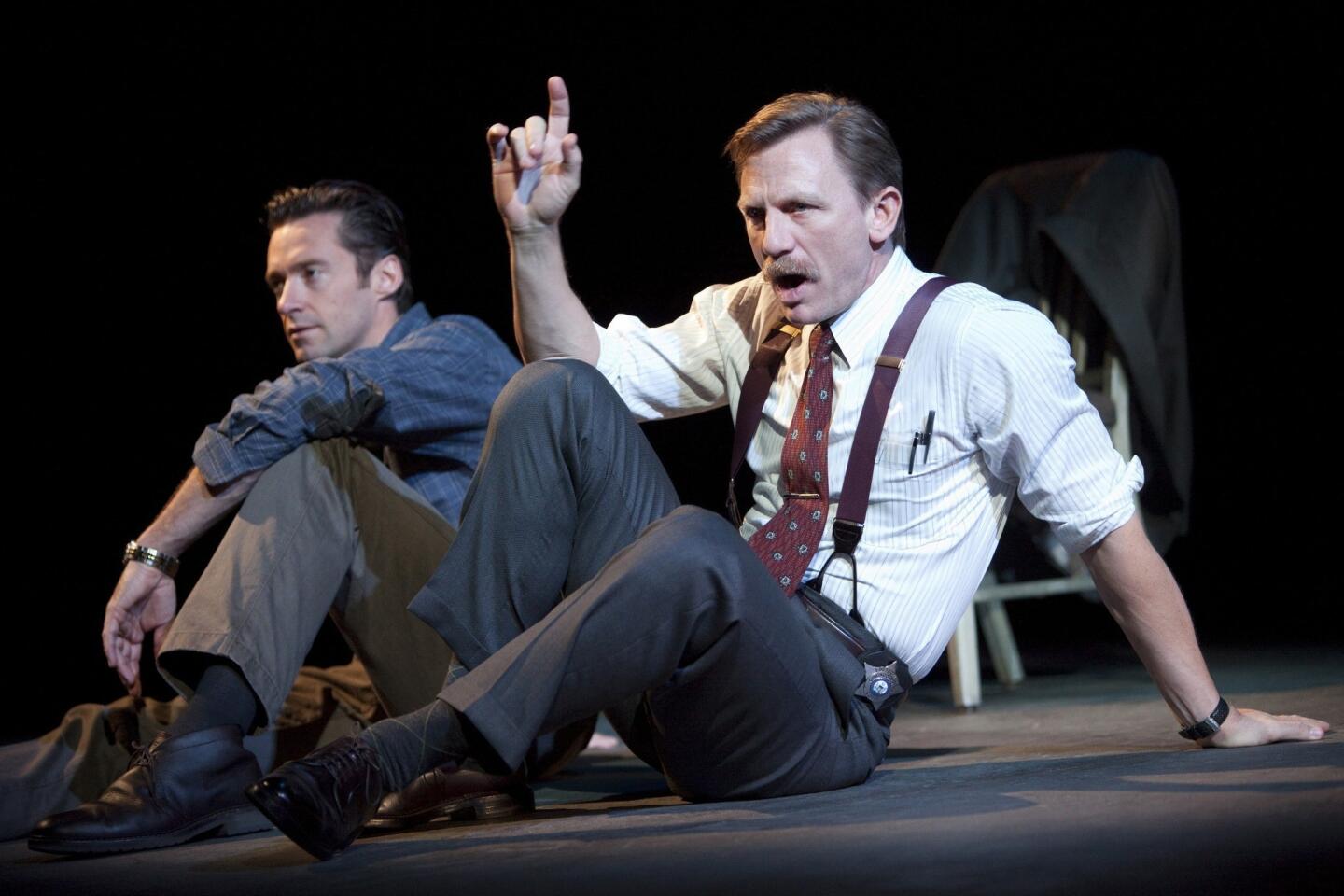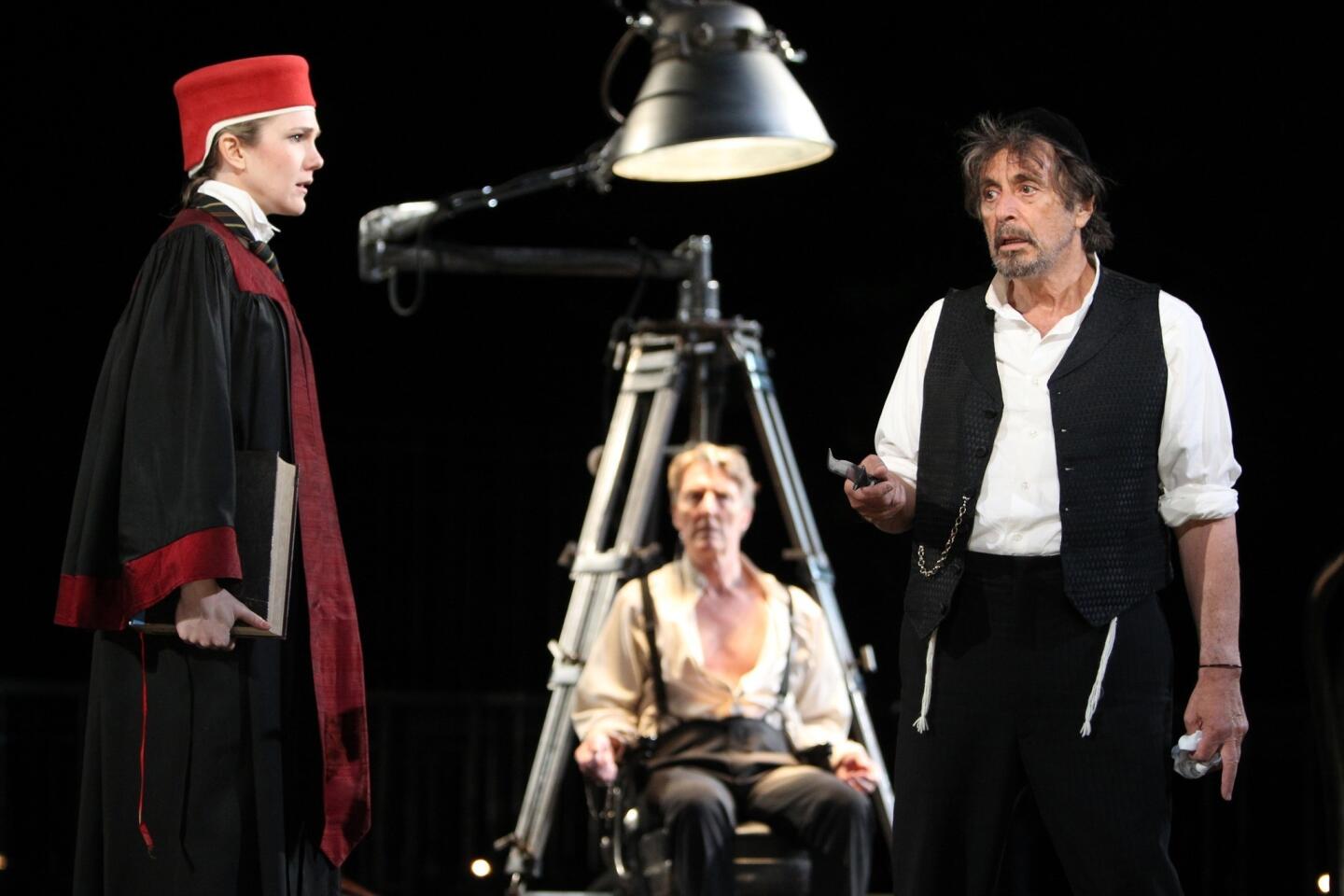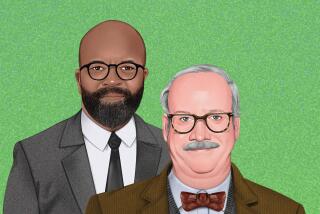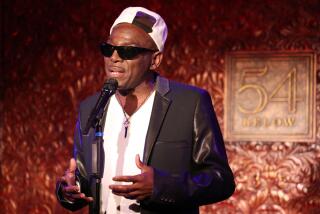2013 Tony Awards: How TV, movie stars fared on Broadway
Another Broadway season, another cavalcade of television and movie stars testing their stage mettle.
Some come to build their acting muscles, others come for the publicity splash, and a select few come because they simply can’t stay away. The chance to perform before an audience in a work that is resonant with meaning outweighs all other considerations, including their agents and managers begging them not to take themselves out of the running for a bit part in a preteen franchise film.
Well, the report cards are in and the grades not surprisingly are mixed.
The biggest name — Tom Hanks — fared the best. He has a solid shot at the Tony Award for his performance in Nora Ephron’s “Lucky Guy.” (The ceremony can be seen Sunday night on CBS.) And though my vote for lead actor in a play would go to Tracy Letts for his pugnacious performance in Pam MacKinnon’s clarifying revival of Edward Albee’s masterpiece “Who’s Afraid of Virginia Woolf?,” Hanks impressed as much for his patented charisma as for his ensemble teamwork.
But the days when a Hollywood headliner was practically guaranteed a Tony for deigning to perform on Broadway are over. Bette Midler electrified the critics with her stage presence in the solo play “I’ll Eat You Last: A Chat With Sue Mengers” but didn’t receive a nomination for the highly competitive lead actress in a play.
Alec Baldwin, a favorite New York son and no stranger to the stage, was the marquee draw of Lyle Kessler’s 1983 play, “Orphans.” But it was Baldwin’s less-heralded costar Tom Sturridge who nabbed a Tony nomination for lead actor — a race that, in addition to Hanks and Letts, includes two beloved Broadway funnymen, Nathan Lane and David Hyde Pierce.
How marvelous to see Cicely Tyson return to the stage after a 30-year absence in the revival of Horton Foote’s “The Trip to Bountiful.” Tyson deserves to win for lead actress in a play, though Michael Wilson’s production was diminished somewhat by the casting of Oscar winner Cuba Gooding Jr., who appeared utterly lost onstage, as though he couldn’t understand why the director wasn’t shouting “Cut!” during his awkward moments.
Joining Gooding at the bottom of this year’s class is Emilia Clarke (of HBO’s “Game of Thrones”), whose charmless turn as Holly Golightly in “Breakfast at Tiffany’s” had me flipping through my mental almanac to come up with a worse Broadway performance. (I’m still flipping.)
Not quite as bad though not all that much better was two-time Oscar nominee Jessica Chastain (“The Help,” “Zero Dark Thirty”) in “The Heiress.” Miscast as the plain Jane spinster-in-training Catherine Sloper, Chastain made clear through her wooden portrayal just how much more difficult stage acting is than film acting even for a Juilliard graduate.
PHOTOS: Hollywood stars on stage
Katie Holmes can’t be blamed for Theresa Rebeck’s dead-on-arrival “Dead Accounts.” Her loveliness deserved a better sitcom — I mean play — but loveliness only goes so far in the theater. The camera can make a meal out of a fresh face, but a proscenium stage requires more from a performer. The invisible must be expertly wielded.
Beauty is so rewarded in our culture that it can forestall the inner work — the digging for something unexpectedly true — that is at the core of great acting. Clarke, Chastain and Holmes made me fear that the Great White Way could be going the way of network television — a bunch of pretty faces giving expression to shopworn emotions.
Codependent relationship?
Broadway has sadly become dependent on star casting, though misadventures such as Al Pacino’s wacko performance in “Glengarry Glen Ross” this season may make audiences a bit more leery of conflating consumer value with celebrity.
Movie stars ought to exercise a bit more caution themselves. Those eager to enhance their theatrical craft might want to consider less high-profile stages. Chastain is a highly regarded film actor, but her interpretation of Catherine Sloper was too tentative to compete with the luminous memory of Cherry Jones’ Tony-winning 1995 performance.
Producers might come calling for Clarke, whose sexy-warrior image in HBO’s ad campaign for “Game of Thrones” was all over the subway stations when “Breakfast at Tiffany’s” opened in the spring. But breeding dragons on cable TV isn’t the best preparation for taking on a theatrical role immortalized in the movies by the one and only Audrey Hepburn.
CHEAT SHEET: Spring Arts Preview
It’s admirable that so many well-known actors want to develop more than just their careers, but someone seems to be giving them bum advice. Who, for instance, encouraged Holmes to sign on to “Dead Accounts”? When Marilyn Monroe came to New York at the height of her fame, she was surrounded by Actors Studio gurus who were encouraging her artistic growth. Actors can’t rely on agents or producers but need to build relationships with theater artists. Parachuting into Broadway increases the odds of an embarrassing mishap.
So many ways to slip up
But even a canny New Yorker can trip up. On paper, Baldwin was ideally suited for a Broadway revival of “Orphans.” His role, a hostage who turns the tables on his captors and becomes their surrogate father, cries out for just the kind of menacing authority and condescending wit that Baldwin honed over the years on “30 Rock.”
But this natural fit of star and vehicle had a couple of drawbacks. The first was that the play, a second-tier offering derivative of Harold Pinter and Sam Shepard, would have been better in a smaller house off-Broadway with cheaper ticket prices. The second was that Baldwin was so outwardly right for the part that he wound up trading on his persona rather than building a character from the ground up the way his costar Sturridge did.
So much controversy surrounded the replacing of Shia LaBeouf from the “Orphans” cast that it was easy to believe that the show had faltered for reasons that had nothing to do with its quality. In truth, there was a fundamental acting problem at the heart of Daniel Sullivan’s production.
PHOTOS: Arts and culture in pictures by The Times
Recently I was reading old lectures by the legendary acting teacher Robert Lewis in which he makes a point about casting that seems germane to the “Orphans” postmortem: “What you ought to look for in choosing someone for a part is whether or not that person can play, and is right for, the highest moment in the part, regardless of whether he exactly fits the first entrance or not.”
Midler’s portrayal of Hollywood super-agent Sue Mengers can be scored a qualified success. A huge hit, the show proved that the Divine Miss M has enormous box office pull on the Great White Way. John Logan’s vehicle, while admittedly paper thin, reintroduced her as a galvanizing theatrical force, and already there’s fantasy casting buzz of her starring in a revival of “Hello, Dolly!”
Hanks is the one star who seems to have gotten it all right. For his Broadway debut, he didn’t make the mistake of his pal Julia Roberts, who had difficulty adapting herself to the verbal filigree of Richard Greenberg’s “Three Days of Rain” when she ventured onto Broadway in an avalanche of publicity in 2006. Ephron is a writer Hanks knew well, having had great success in two of her blockbusters, “Sleepless in Seattle” and “You’ve Got Mail.” “Lucky Guy,” produced after Ephron’s death, was clearly a labor of love for him.
It was also a play that played to his strengths. His character, Mike McAlary, a scrappy New York tabloid columnist, is an everyman — a slightly disagreeable one but an everyman nonetheless. No one inhabits this medium range of soul better than Hanks.
Better still, the work, which bounces around several highly competitive newsrooms, invites him to become part of an ensemble. Hanks clearly thrives in the company of other actors. (His early Shakespeare background at the Great Lakes Theater Festival no doubt contributed to this ethic.) There’s a generosity, even a humility, to his performance.
This isn’t about swanning in the spotlight and flying back to his West Coast mansion. He’s finding McAlary’s character through his dynamic interaction with his fellow cast members. By working so honestly in this fashion, he endows “Luck Guy” with a weight that may not be inherent in the script. (Having a director as sharp has George C. Wolfe doesn’t hurt.)
Purists decry the trend of Hollywood stars taking over Broadway. Not me. To the Leonardo DiCaprios of this world considering taking a theatrical plunge, I say follow Hanks’ smart lead.
More to Read
The biggest entertainment stories
Get our big stories about Hollywood, film, television, music, arts, culture and more right in your inbox as soon as they publish.
You may occasionally receive promotional content from the Los Angeles Times.
